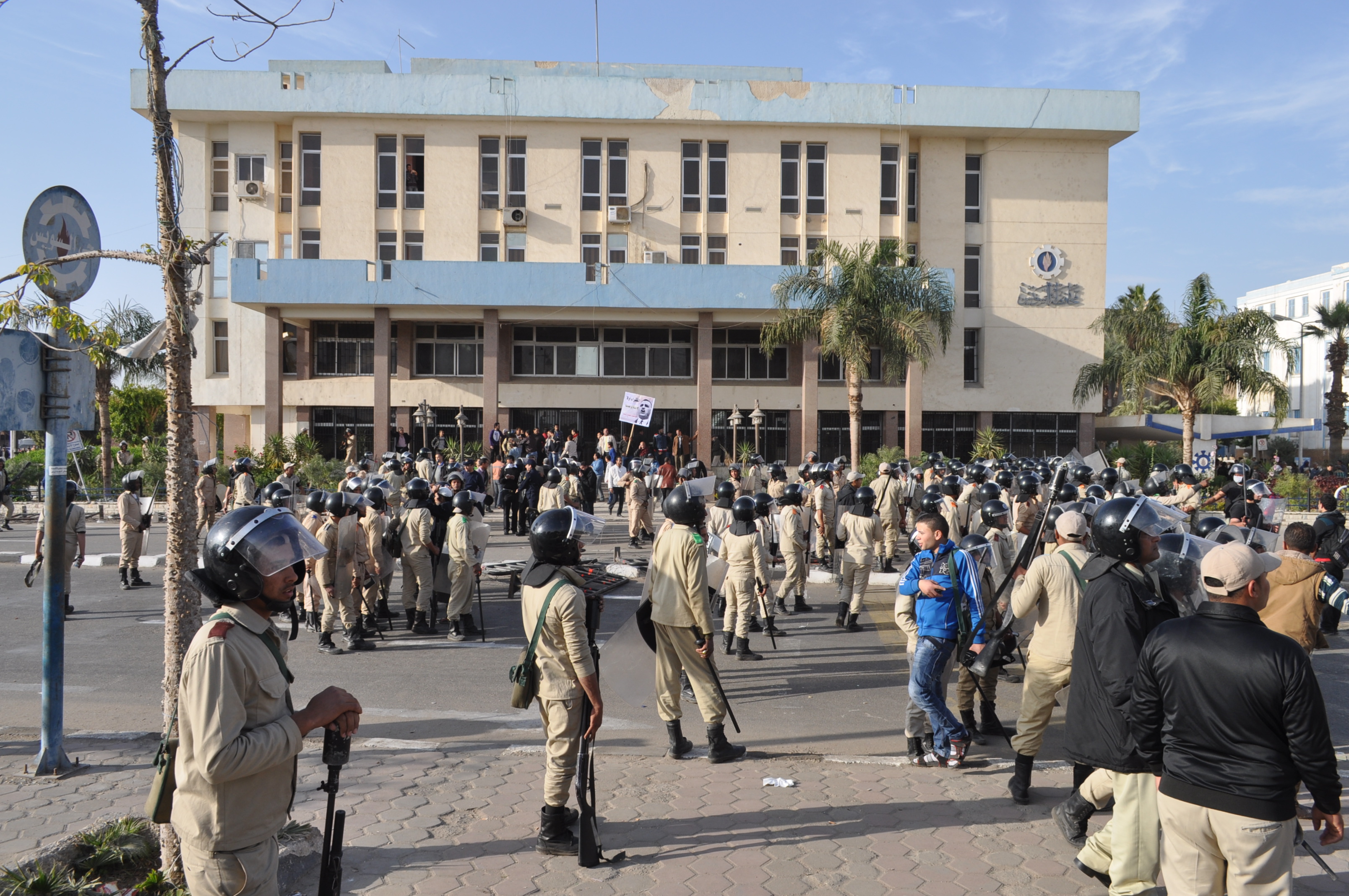By Hamza Hendawi / AP
CAIRO: From plumbers to lawyers, dessert chefs to retired master spies, hundreds are trying to join the race for president in what is shaping up to be Egypt’s most exciting vote in living memory.
The vote is the first since last year’s ouster of authoritarian leader Hosni Mubarak in a popular uprising. And Egyptians are reveling in the anything-goes atmosphere after the restricted votes of the past, though most of the would-be candidates won’t qualify to run and the front-runner will be whoever is backed by the newly powerful Islamists.
Electoral officials said Wednesday that at least 500 Egyptians have taken the first step to run for president, obtaining applications to officially declare their candidacy.
Beside the known presidential hopefuls who have been seriously campaigning, the officials said the applicants included a wide range of obscure Egyptians such as journalists, judges, lawyers and school teachers. There are plumbers, coffee shop owners, a cleaning lady, lawyers, a housewife, a dessert chef, judges, lecturers, constitutional experts, restaurant owners and an undertaker from the Nile Delta as well as two career intelligence officers.
With less than four weeks until the deadline to register candidates, there is no clear front-runner among the field of Mubarak-era politicians, retired generals, Islamists and scholars who are leading the pack. Many commentators are speculating that a surprise candidate may emerge at the 11th hour who will sweep the election with the backing of the Islamists and the ruling generals who took over from Mubarak 13 months ago.
“Are they planning for a general to appear at the last moment, when all scenarios don’t yield a candidate tailor made for the purposes of the (ruling) military council?” wrote columnist Wael Abdel-Fatah Wednesday in the independent Tahrir daily.
The Muslim Brotherhood, parliament’s largest bloc, will not field a candidate from its ranks or support one linked to an Islamist party, but says the next president must have an Islamist background.
Power in Egypt has long been concentrated in the hands of the president. Mubarak ran the country with unquestioned authority for 29 years until his ouster in February 2011. And generals who took over from him function as a collective presidency, again with far-reaching powers.
The Islamists who have dominated elections for parliament’s two chambers would like to curtail the powers of the president’s office and give more authority to the legislature.
The next president will only be the fifth president in nearly 60 years.
The military, Egypt’s most dominant force since army officers staged a 1952 coup that toppled the monarchy, has publicly stayed silent on the campaign. But it is widely suspected to be frantically working behind the scenes to ensure that the next president does not remove the immunity it has enjoyed for years from civilian scrutiny or curb its significant influence on politics.
The Islamists, particularly the Brotherhood, and the military share considerable common ground and are most likely to back the same candidate, said analyst Khalil El-Anani of Britain’s Durham University.
“Both are conservative, hierarchical, more interested in stability than change and honor the principle of blind obedience to leaders,” said El-Anani, who is an Egyptian expert on Islamic groups. “The presidential qualities they are looking for are similar: Friendly toward the Islamists, not hostile toward the military and efficient but not charismatic. None of the hopefuls now in the field have these qualities.”
Two of the top presidential hopefuls, former Arab League chief and Mubarak-era foreign minister Amr Moussa and former Prime Minister Lt. Gen. Ahmed Shafiq, have warm relations with the generals. Still, they may not be the generals’ favorites.
Two other strong candidates, ultraconservative Hazem Abu-Ismail and moderate Islamist Abdel-Moneim Abol Fotoh, have frostier relations with the military and are thought more likely to try to deprive the generals of a significant political role after the transition of power. Neither of the two enjoy the backing of the Brotherhood.
The generals and the Brotherhood deny that they have any kind of secret understanding behind the scenes, but the Brotherhood appears to be consistently going to great lengths to accommodate the military.
The election is scheduled for May 23-24. Independent applicants must secure the endorsement of 30 lawmakers or 30,000 people in at least 15 of Egypt’s 18 provinces in order to run. Applicants from political parties with at least one member in parliament are exempt from these endorsements.
Most if not all the obscure hopefuls would find it outright impossible to meet the requirements, but their interest speaks to the absence of the fear that gripped this nation when Mubarak’s pervasive security forces showed little or no tolerance to any challenge to the regime.
Presidents in Egypt over the past 60 years ago secured the land’s highest office through heavily rigged referendums in which no other names but theirs appeared on ballot papers.
The only exception was in 2005, when Mubarak allowed other candidates to run against him. He won that vote comfortably, but later jailed the politician who finished a distant second on drummed-up forgery charges.

